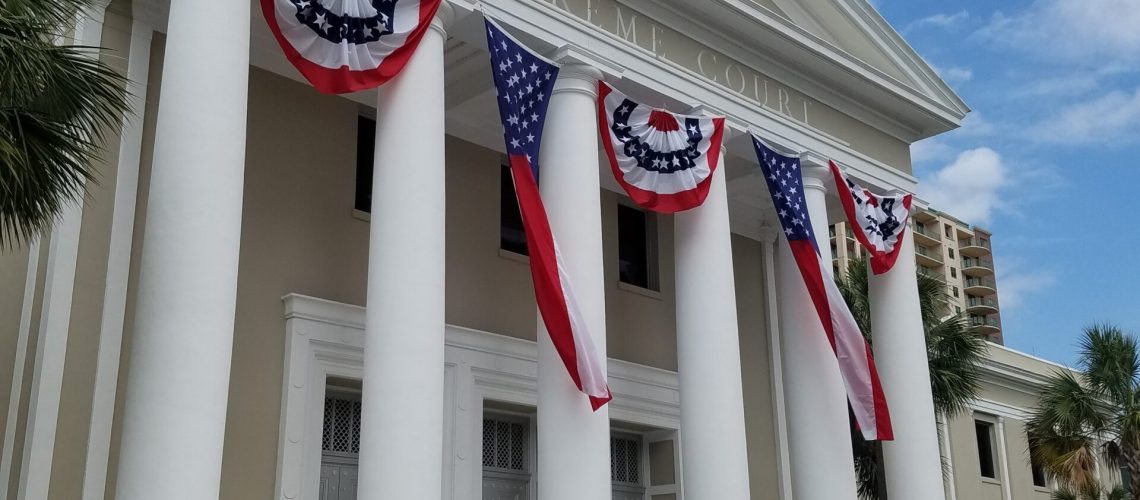- Purpose of the Amendments:
- Address backlog of civil cases, with some judges overseeing over 1,100 cases.
- Proposed changes aim to improve case management, expedite dispute resolution, and encourage cooperation among parties.
- Background:
- Recommendations stem from the Workgroup on Improved Resolution of Civil Cases, formed in 2019.
- Focused on streamlining civil litigation for faster, cost-effective, and fair outcomes.
- The Florida Supreme Court initially declined the proposed changes but later referred them to the Florida Bar’s Civil Procedure Rules Committee, which provided the current proposals.
- Key Proposed Changes:
1. Case Management Overhaul (Rule 1.200):- New Structure for Case Management:
- Streamlined Track: For cases with limited discovery and trials lasting no more than 3 days.
- General Track: For typical cases not qualifying as complex or streamlined.
- Complex Track: For cases requiring significant judicial resources (continues under Rule 1.201).
- Deadlines & Case Management Orders:
- Courts must issue specific orders, setting deadlines for critical phases (discovery, adding parties, motions, etc.).
- Deadlines are strictly enforced and can only be changed by court order.
- Case Management Conferences: Courts may hold conferences to address scheduling and other issues (except summary judgment motions).
- Hearing on Complex Designation: Courts can hold hearings to determine if a case should be classified as complex.
- Efficient Resource Use: Parties must notify the court if a scheduled hearing is unnecessary to avoid wasting judicial resources.
- Continuance Restrictions: Motions for continuance in complex cases will follow stricter rules under Rule 1.460.
- Duty to Confer (Rule 1.202):
- Parties must confer in good faith before filing most motions (except for injunctive relief or summary judgment).
- Certificate of Conferral: Movants must file proof of their conferral efforts, detailing communication and whether an agreement was reached.
- Proportionality in Discovery (Rule 1.280):
- Discovery must be proportional to the case’s needs, assessing factors like importance, cost, and burden.
- Initial Discovery Disclosures: Parties must provide disclosures within 60 days of filing, including names, documents, and damages computations.
- Ongoing Duty to Supplement: Parties must update discovery responses if they learn that the information is incomplete or incorrect.
- Electronically Stored Information (ESI): Courts can limit discovery of ESI if it’s deemed overly burdensome.
- Setting Trial Dates (Rule 1.440):
- No longer required to wait for a case to be “at issue” before setting a trial date.
- Courts must set trial dates within 45 days of the projected trial period, with ample notice (at least 30 days).
- Motions for Continuance (Rule 1.460):
- Motions to continue trials will be disfavored and granted only for good cause.
- Movants must provide detailed reasons and propose a new trial date.
- Dilatory Conduct: Attorneys or parties delaying the trial without good cause may face sanctions.
- Summary Judgment Process (Rule 1.510):
- Response deadlines for summary judgment motions are tied to the service of the motion, not the hearing date.
- Procedures must align with case management deadlines for consistency and predictability.
- New Structure for Case Management:
- Impacts & Benefits:
- Efficiency: Proposed changes aim to reduce delays and ensure more timely resolutions.
- Collaboration: Encouraging cooperation between parties should reduce unnecessary litigation costs.
- Structure: With clearer deadlines and better case management, the courts will become more efficient in handling civil cases.
- Adaptation: Lawyers and litigants will need to adjust to these more structured rules and adopt a collaborative approach.


